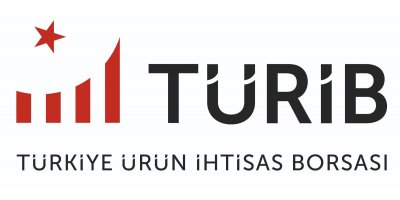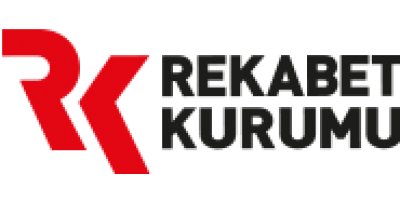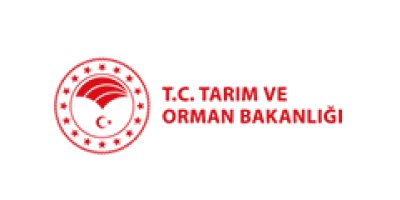23 December 2025 Tuesday
Issue 35: They Set Out to Produce Quality Olive Oil
When did you first become interested in olive oil production?
In 2007, I attended a conference on the importance of branding at the Bodrum Chamber of Commerce, which became a turning point in my life. Since then, I have prioritized branding and entered the olive oil sector in 2008 with the ‘Tibak’ brand. The reason that drew me to invest in my hometown was not only the existing potential for olives and their organic quality but also the desire to break the "Yemen Turkish" tradition. “Those who leave do not return.” Even if we do other jobs elsewhere and build our lives there, this is our hometown. There are hundreds of people like me who have gone and found great success without returning. Unfortunately, we are like the Yemen Turkish. Those who leave do not come back. I wanted to change this tradition. Years ago, I purchased this land and planted trees. These trees led me to invest here. Therefore, I believe that everyone who goes abroad should plant a tree in their hometown. They can say, “I have a tree here,” and hopefully, they will return one day, just like I did. At that time, we would completely break the Yemen Turkish tradition.
Çine Akçaova is a mountainous area, and the main source of income for the people is olive cultivation. In 2008, we noticed that none of their products had been packaged or branded. Consequently, they had not gained any value. This situation, as an entrepreneur, saddened me. Therefore, I decided to invest in olives and create added value through branding.
.jpg)
Can you tell us about your production system and the characteristics of your products?
Our company is based in Muğla/Bodrum, and our factory operates in Aydın/Çine/Akçaova, with an indoor area of 1,100 m² and an outdoor area of 10,300 m², along with a closed pomace pool of 460 m³. In our facility, two-phase organic pressing is carried out. As a company, we closely follow all innovations in the industry and embrace technological advancements. Our innovative firm upgraded its systems in 2020 with the OLİVE PRO54HAUS brand 2021 model machines, increasing our daily capacity to 80 tons. We offer 33 different packaging options for Early Harvest, Mature Harvest, and Natural Extra Virgin Olive Oil under the TİBAK ZEYTİNYAĞLARI brand. We sell these products to domestic and international distributors and through e-commerce, providing free shipping and cash-on-delivery options throughout Turkey. We take pride in contributing to our consumers' health with our ecological pressing and environmentally friendly olive oils, certified by the Ministry of Agriculture and Forestry under the number TR-09-K-008983.
Can you describe the stages olive oil goes through?
Olives are harvested between October and March. Products obtained between October and November are classified as Early Harvest Olive Oil, while those harvested after November are considered Mature Harvest Olive Oil. The harvested olives are transported to our factory in crates on the same day. After the branches and leaves are removed using fans, the olives are transferred to the washing pool to remove dust and dirt. The washed olives are then taken to the crushing and grinding section, where they are crushed and ground along with the pits to form a paste. The olive paste is kneaded by machines called malaxers for an average of 20 to 40 minutes. The temperature of the olive is crucial at this stage for determining whether the oil will be hot or cold pressed. Olive oil is considered cold pressed if the temperature remains below 27 degrees Celsius. If it exceeds this temperature, it is classified as hot pressed. The olive paste is then sent to the decanter section via a paste pump. While the paste rotates on a horizontal plane, the pomace, which is considered waste, is expelled. The pomace can also be used as fuel rather than waste. Two products come out of the decanter: one is olive oil, and the other is the residue from the olives, which is why it is referred to as two-phase. The first product exiting the decanter is sent to the separator section to remove any remaining sediments, while the second product is directed to the pomace pool. Subsequently, the olive oil obtained in the separator section is sent to the filtration section to be purified from all sediments, resulting in a shiny appearance. Olive oil produced without filtration is referred to as unfiltered olive oil. TİBAK Zeytinyağları undergo numerous chemical and sensory analyses and is packaged under hygienic conditions to reach your tables.
Can you discuss the position of olive oil in our country and the world?
Although the importance of olive oil in Turkey has increased compared to previous years, it is still not sufficient. Unfortunately, the global demand for olive oil is much higher than that in our country. Due to periodicity, Turkey's production remains low. Additionally, the rising costs of products, especially in electricity and fuel prices, negatively affect the industry. The structural problems faced by businesses involved in olive cultivation and olive oil processing need to be addressed. The goal should be to promote exports as packaged Turkish olive oil and to increase exports in this manner. Unfortunately, due to past mistakes, the European market approaches our country with significant prejudice. I encountered this firsthand during my olive oil exports to the UK. In a dialogue, an English chef who stated, "Turkish oil is not of high quality," was able to taste our olive oil, demonstrating the high quality of olive oil produced in Turkey. Once we obtain quality olive oil through proper pressing techniques, there will be no obstacles to exporting to the world. The quality of TİBAK Zeytinyağları has also been certified through various competitions, where we have received gold medals and special jury awards.
Lastly, what would you like to say?
We recommend that olive oil consumers choose early harvest olive oil for salads and raw consumption, while opting for mature harvest olive oil for hot dishes. When consuming olive oil at home, it is essential to avoid exposure to heat, light, and oxygen. These three factors can accelerate the degradation process of olive oil. If you store olive oil under suitable conditions, you can use it until the expiration date indicated on the packaging.












